Leadership, Management, and Operations: A Unilever Case Study
VerifiedAdded on 2023/01/11
|17
|4551
|83
Report
AI Summary
This report provides a comprehensive analysis of management and operations within Unilever, a multinational consumer goods company. It begins with an introduction to operations management and its significance, followed by a comparison of the roles and characteristics of managers and leaders. The report then examines how leaders and managers function in different situational contexts, such as conflict and performance management, using specific examples from Unilever. Different theories and models of approach are discussed to analyze the roles of managers and leaders, including system leadership and situational leadership. The report further explores key approaches to operations management, emphasizing the roles of leaders and managers in achieving business objectives, and the influence of the business environment on operational decision-making. The analysis highlights Unilever's strategies in managing a large workforce, adapting to changes, and engaging employees to enhance operational efficiency and sustainability. The report concludes by summarizing the key findings and providing a reference list.
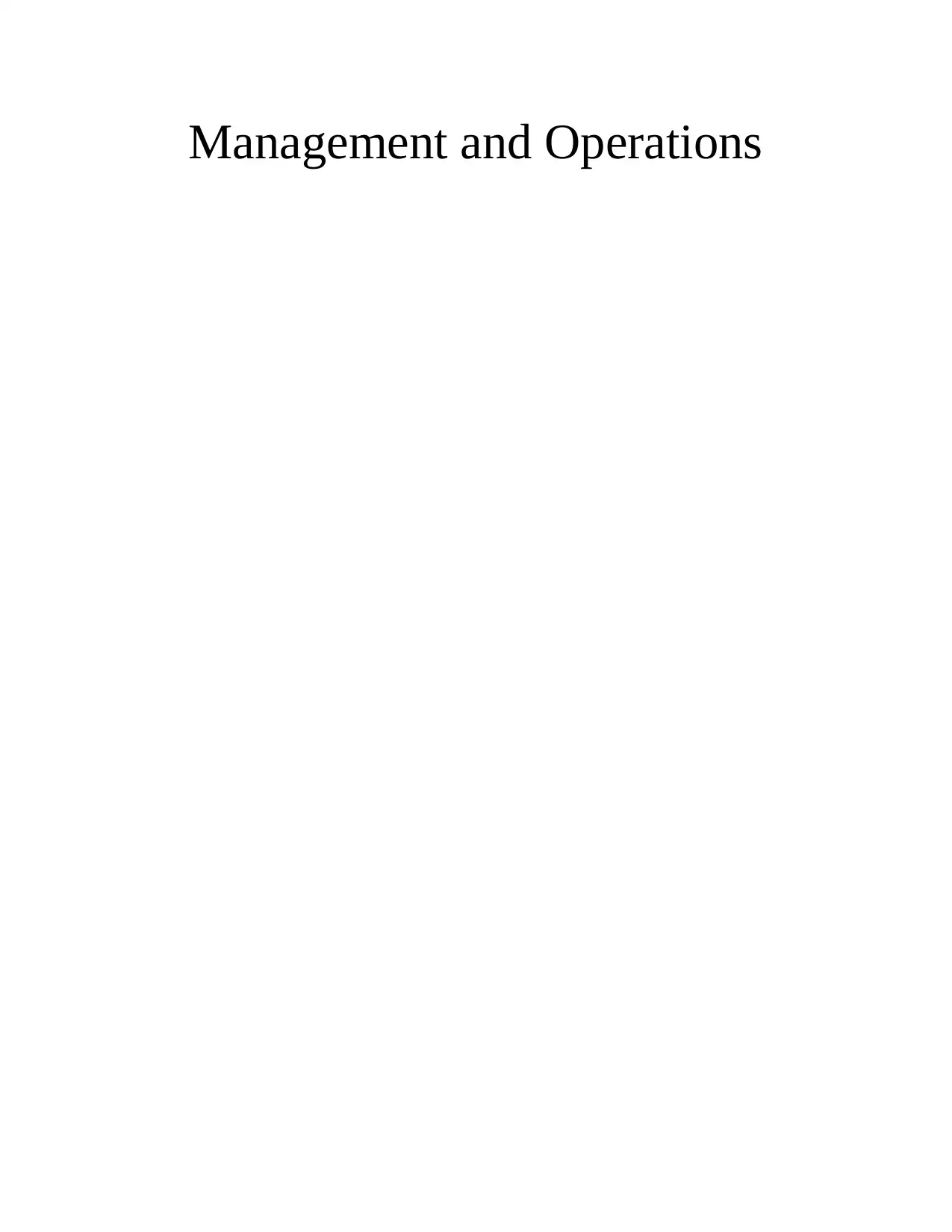
Management and Operations
Paraphrase This Document
Need a fresh take? Get an instant paraphrase of this document with our AI Paraphraser
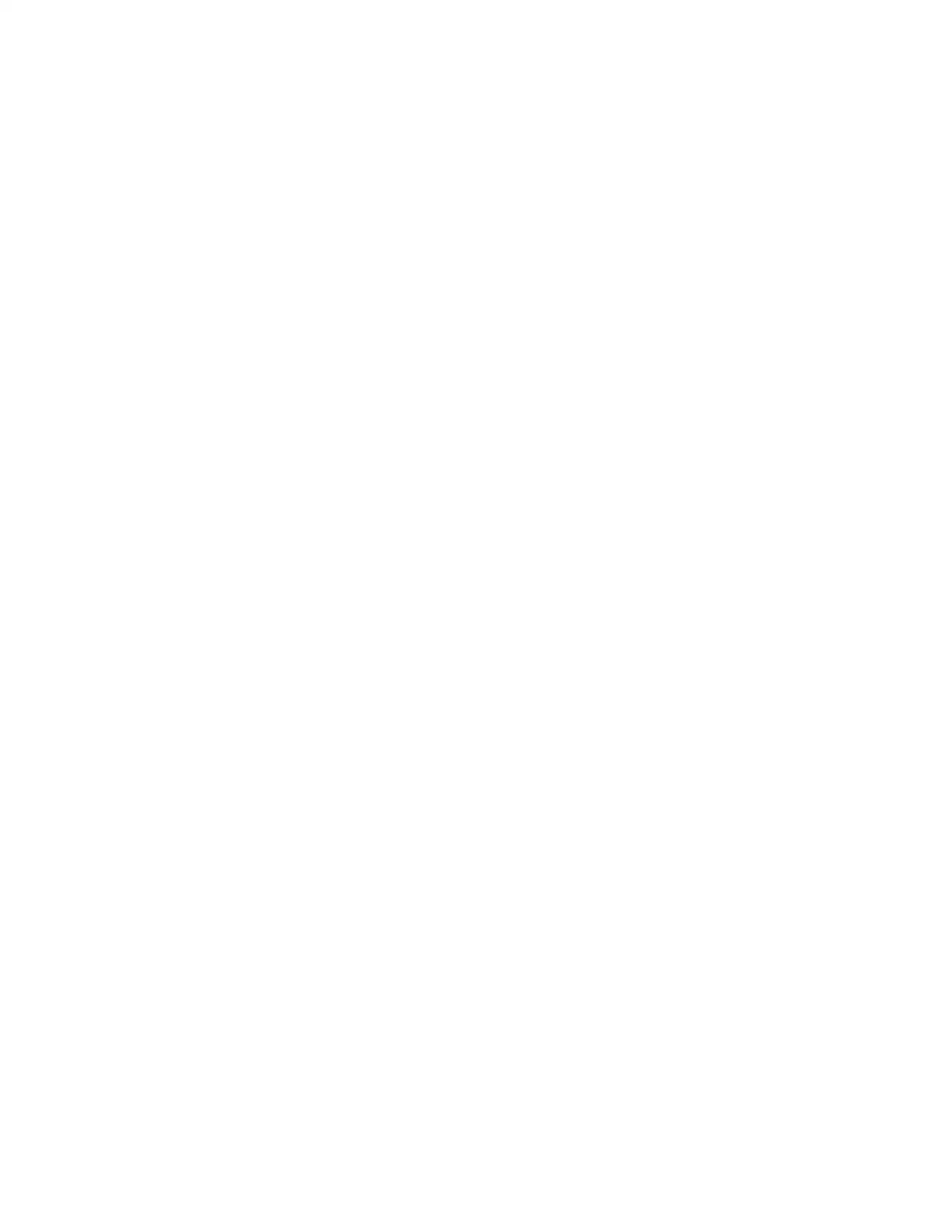
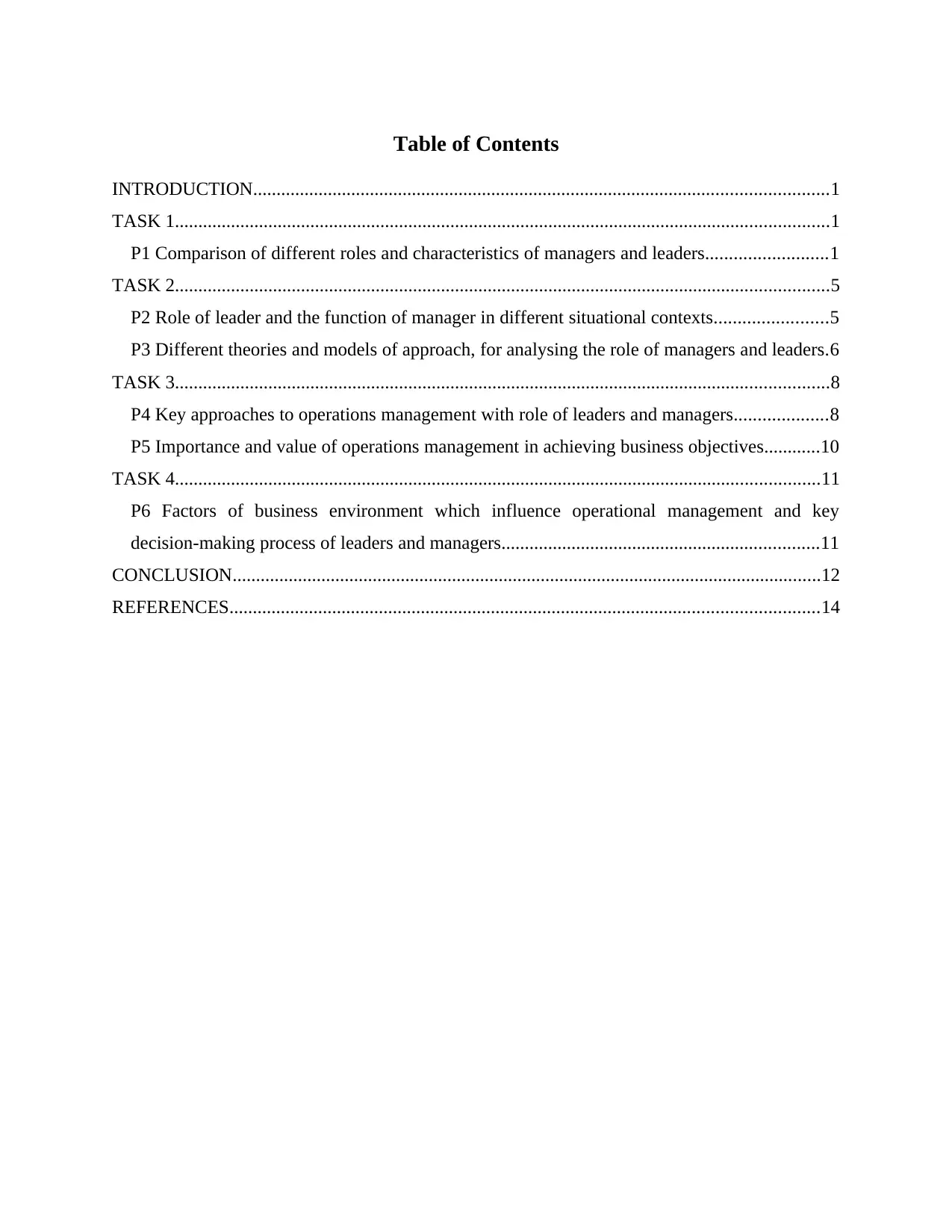
Table of Contents
INTRODUCTION...........................................................................................................................1
TASK 1............................................................................................................................................1
P1 Comparison of different roles and characteristics of managers and leaders..........................1
TASK 2............................................................................................................................................5
P2 Role of leader and the function of manager in different situational contexts........................5
P3 Different theories and models of approach, for analysing the role of managers and leaders.6
TASK 3............................................................................................................................................8
P4 Key approaches to operations management with role of leaders and managers....................8
P5 Importance and value of operations management in achieving business objectives............10
TASK 4..........................................................................................................................................11
P6 Factors of business environment which influence operational management and key
decision-making process of leaders and managers....................................................................11
CONCLUSION..............................................................................................................................12
REFERENCES..............................................................................................................................14
INTRODUCTION...........................................................................................................................1
TASK 1............................................................................................................................................1
P1 Comparison of different roles and characteristics of managers and leaders..........................1
TASK 2............................................................................................................................................5
P2 Role of leader and the function of manager in different situational contexts........................5
P3 Different theories and models of approach, for analysing the role of managers and leaders.6
TASK 3............................................................................................................................................8
P4 Key approaches to operations management with role of leaders and managers....................8
P5 Importance and value of operations management in achieving business objectives............10
TASK 4..........................................................................................................................................11
P6 Factors of business environment which influence operational management and key
decision-making process of leaders and managers....................................................................11
CONCLUSION..............................................................................................................................12
REFERENCES..............................................................................................................................14
⊘ This is a preview!⊘
Do you want full access?
Subscribe today to unlock all pages.

Trusted by 1+ million students worldwide
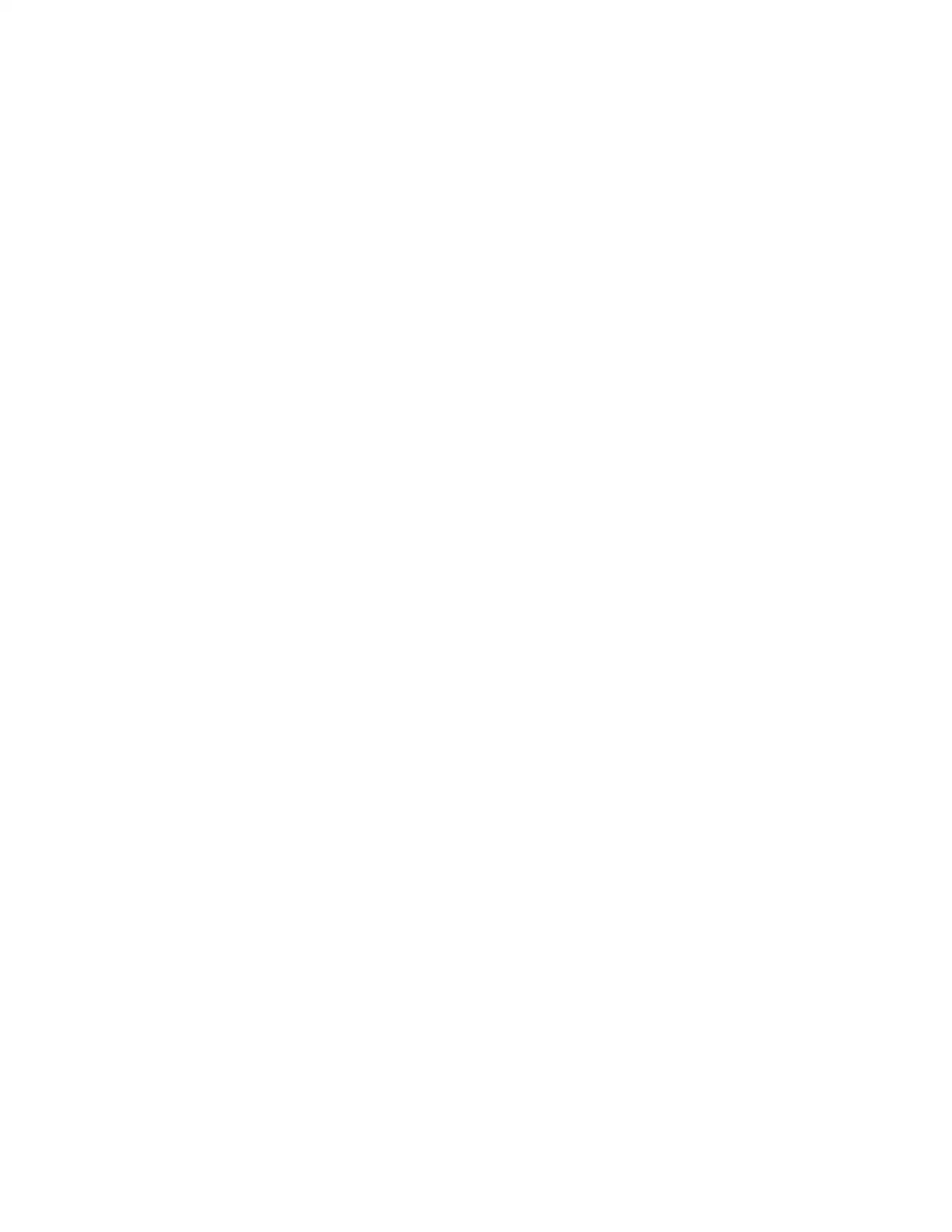
Paraphrase This Document
Need a fresh take? Get an instant paraphrase of this document with our AI Paraphraser
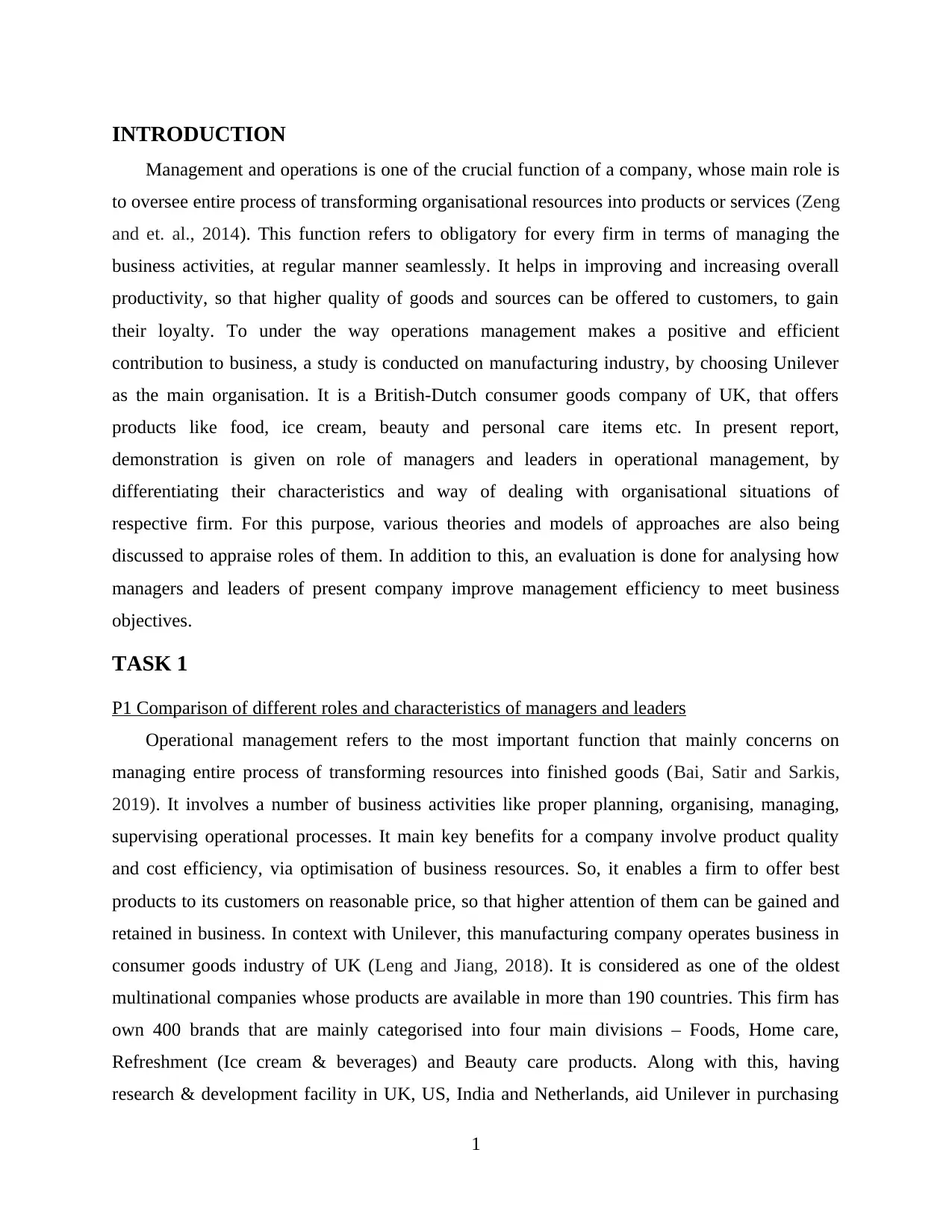
INTRODUCTION
Management and operations is one of the crucial function of a company, whose main role is
to oversee entire process of transforming organisational resources into products or services (Zeng
and et. al., 2014). This function refers to obligatory for every firm in terms of managing the
business activities, at regular manner seamlessly. It helps in improving and increasing overall
productivity, so that higher quality of goods and sources can be offered to customers, to gain
their loyalty. To under the way operations management makes a positive and efficient
contribution to business, a study is conducted on manufacturing industry, by choosing Unilever
as the main organisation. It is a British-Dutch consumer goods company of UK, that offers
products like food, ice cream, beauty and personal care items etc. In present report,
demonstration is given on role of managers and leaders in operational management, by
differentiating their characteristics and way of dealing with organisational situations of
respective firm. For this purpose, various theories and models of approaches are also being
discussed to appraise roles of them. In addition to this, an evaluation is done for analysing how
managers and leaders of present company improve management efficiency to meet business
objectives.
TASK 1
P1 Comparison of different roles and characteristics of managers and leaders
Operational management refers to the most important function that mainly concerns on
managing entire process of transforming resources into finished goods (Bai, Satir and Sarkis,
2019). It involves a number of business activities like proper planning, organising, managing,
supervising operational processes. It main key benefits for a company involve product quality
and cost efficiency, via optimisation of business resources. So, it enables a firm to offer best
products to its customers on reasonable price, so that higher attention of them can be gained and
retained in business. In context with Unilever, this manufacturing company operates business in
consumer goods industry of UK (Leng and Jiang, 2018). It is considered as one of the oldest
multinational companies whose products are available in more than 190 countries. This firm has
own 400 brands that are mainly categorised into four main divisions – Foods, Home care,
Refreshment (Ice cream & beverages) and Beauty care products. Along with this, having
research & development facility in UK, US, India and Netherlands, aid Unilever in purchasing
1
Management and operations is one of the crucial function of a company, whose main role is
to oversee entire process of transforming organisational resources into products or services (Zeng
and et. al., 2014). This function refers to obligatory for every firm in terms of managing the
business activities, at regular manner seamlessly. It helps in improving and increasing overall
productivity, so that higher quality of goods and sources can be offered to customers, to gain
their loyalty. To under the way operations management makes a positive and efficient
contribution to business, a study is conducted on manufacturing industry, by choosing Unilever
as the main organisation. It is a British-Dutch consumer goods company of UK, that offers
products like food, ice cream, beauty and personal care items etc. In present report,
demonstration is given on role of managers and leaders in operational management, by
differentiating their characteristics and way of dealing with organisational situations of
respective firm. For this purpose, various theories and models of approaches are also being
discussed to appraise roles of them. In addition to this, an evaluation is done for analysing how
managers and leaders of present company improve management efficiency to meet business
objectives.
TASK 1
P1 Comparison of different roles and characteristics of managers and leaders
Operational management refers to the most important function that mainly concerns on
managing entire process of transforming resources into finished goods (Bai, Satir and Sarkis,
2019). It involves a number of business activities like proper planning, organising, managing,
supervising operational processes. It main key benefits for a company involve product quality
and cost efficiency, via optimisation of business resources. So, it enables a firm to offer best
products to its customers on reasonable price, so that higher attention of them can be gained and
retained in business. In context with Unilever, this manufacturing company operates business in
consumer goods industry of UK (Leng and Jiang, 2018). It is considered as one of the oldest
multinational companies whose products are available in more than 190 countries. This firm has
own 400 brands that are mainly categorised into four main divisions – Foods, Home care,
Refreshment (Ice cream & beverages) and Beauty care products. Along with this, having
research & development facility in UK, US, India and Netherlands, aid Unilever in purchasing
1
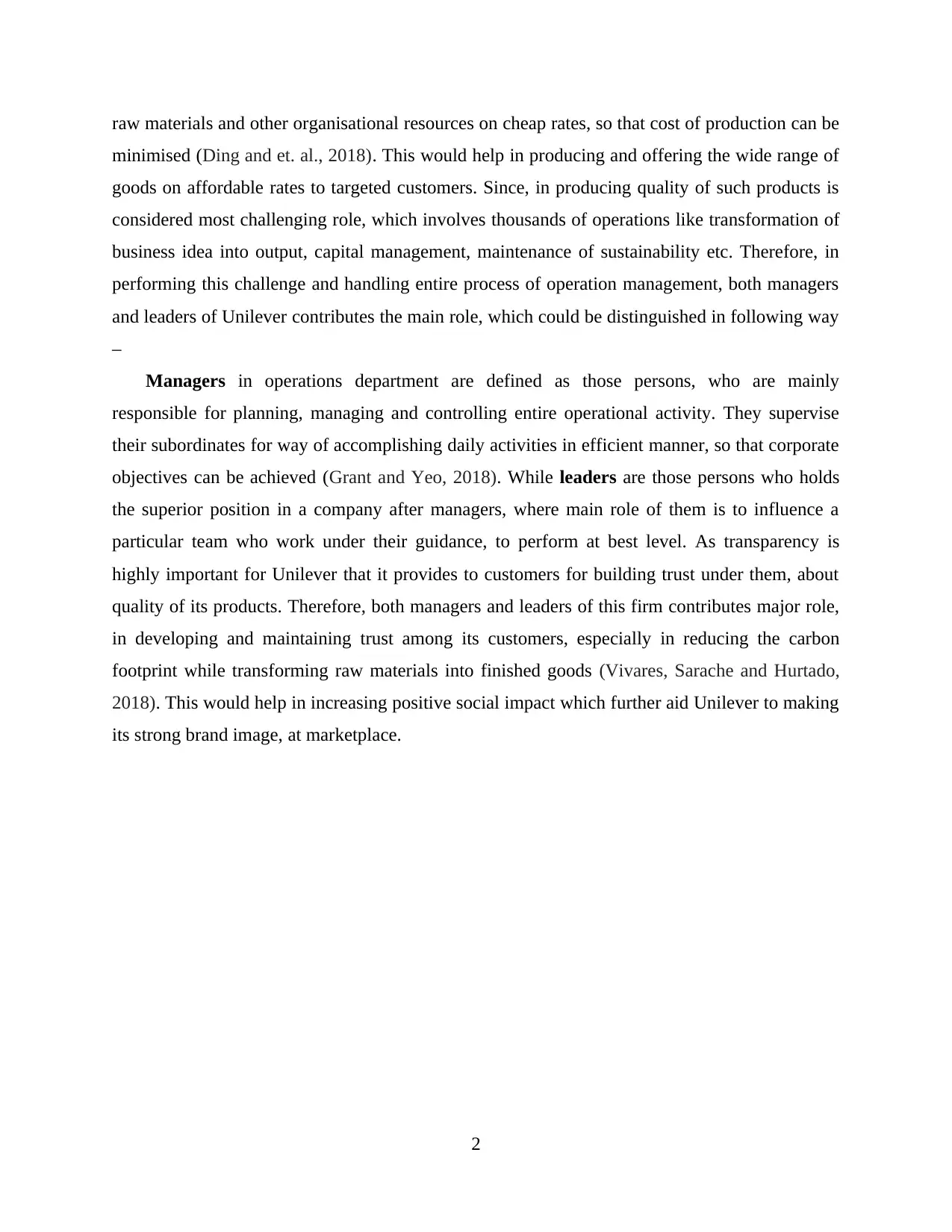
raw materials and other organisational resources on cheap rates, so that cost of production can be
minimised (Ding and et. al., 2018). This would help in producing and offering the wide range of
goods on affordable rates to targeted customers. Since, in producing quality of such products is
considered most challenging role, which involves thousands of operations like transformation of
business idea into output, capital management, maintenance of sustainability etc. Therefore, in
performing this challenge and handling entire process of operation management, both managers
and leaders of Unilever contributes the main role, which could be distinguished in following way
–
Managers in operations department are defined as those persons, who are mainly
responsible for planning, managing and controlling entire operational activity. They supervise
their subordinates for way of accomplishing daily activities in efficient manner, so that corporate
objectives can be achieved (Grant and Yeo, 2018). While leaders are those persons who holds
the superior position in a company after managers, where main role of them is to influence a
particular team who work under their guidance, to perform at best level. As transparency is
highly important for Unilever that it provides to customers for building trust under them, about
quality of its products. Therefore, both managers and leaders of this firm contributes major role,
in developing and maintaining trust among its customers, especially in reducing the carbon
footprint while transforming raw materials into finished goods (Vivares, Sarache and Hurtado,
2018). This would help in increasing positive social impact which further aid Unilever to making
its strong brand image, at marketplace.
2
minimised (Ding and et. al., 2018). This would help in producing and offering the wide range of
goods on affordable rates to targeted customers. Since, in producing quality of such products is
considered most challenging role, which involves thousands of operations like transformation of
business idea into output, capital management, maintenance of sustainability etc. Therefore, in
performing this challenge and handling entire process of operation management, both managers
and leaders of Unilever contributes the main role, which could be distinguished in following way
–
Managers in operations department are defined as those persons, who are mainly
responsible for planning, managing and controlling entire operational activity. They supervise
their subordinates for way of accomplishing daily activities in efficient manner, so that corporate
objectives can be achieved (Grant and Yeo, 2018). While leaders are those persons who holds
the superior position in a company after managers, where main role of them is to influence a
particular team who work under their guidance, to perform at best level. As transparency is
highly important for Unilever that it provides to customers for building trust under them, about
quality of its products. Therefore, both managers and leaders of this firm contributes major role,
in developing and maintaining trust among its customers, especially in reducing the carbon
footprint while transforming raw materials into finished goods (Vivares, Sarache and Hurtado,
2018). This would help in increasing positive social impact which further aid Unilever to making
its strong brand image, at marketplace.
2
⊘ This is a preview!⊘
Do you want full access?
Subscribe today to unlock all pages.

Trusted by 1+ million students worldwide
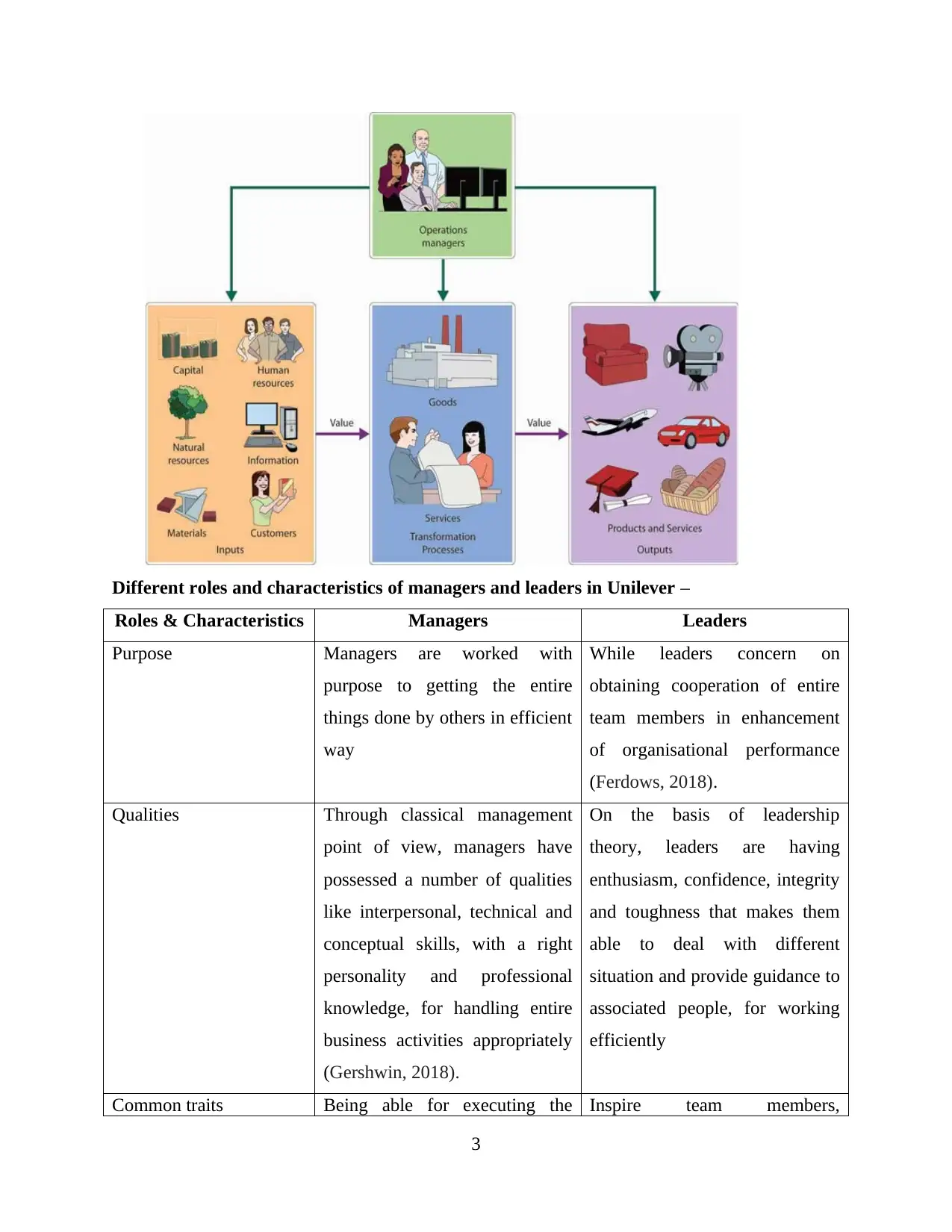
Different roles and characteristics of managers and leaders in Unilever –
Roles & Characteristics Managers Leaders
Purpose Managers are worked with
purpose to getting the entire
things done by others in efficient
way
While leaders concern on
obtaining cooperation of entire
team members in enhancement
of organisational performance
(Ferdows, 2018).
Qualities Through classical management
point of view, managers have
possessed a number of qualities
like interpersonal, technical and
conceptual skills, with a right
personality and professional
knowledge, for handling entire
business activities appropriately
(Gershwin, 2018).
On the basis of leadership
theory, leaders are having
enthusiasm, confidence, integrity
and toughness that makes them
able to deal with different
situation and provide guidance to
associated people, for working
efficiently
Common traits Being able for executing the Inspire team members,
3
Roles & Characteristics Managers Leaders
Purpose Managers are worked with
purpose to getting the entire
things done by others in efficient
way
While leaders concern on
obtaining cooperation of entire
team members in enhancement
of organisational performance
(Ferdows, 2018).
Qualities Through classical management
point of view, managers have
possessed a number of qualities
like interpersonal, technical and
conceptual skills, with a right
personality and professional
knowledge, for handling entire
business activities appropriately
(Gershwin, 2018).
On the basis of leadership
theory, leaders are having
enthusiasm, confidence, integrity
and toughness that makes them
able to deal with different
situation and provide guidance to
associated people, for working
efficiently
Common traits Being able for executing the Inspire team members,
3
Paraphrase This Document
Need a fresh take? Get an instant paraphrase of this document with our AI Paraphraser
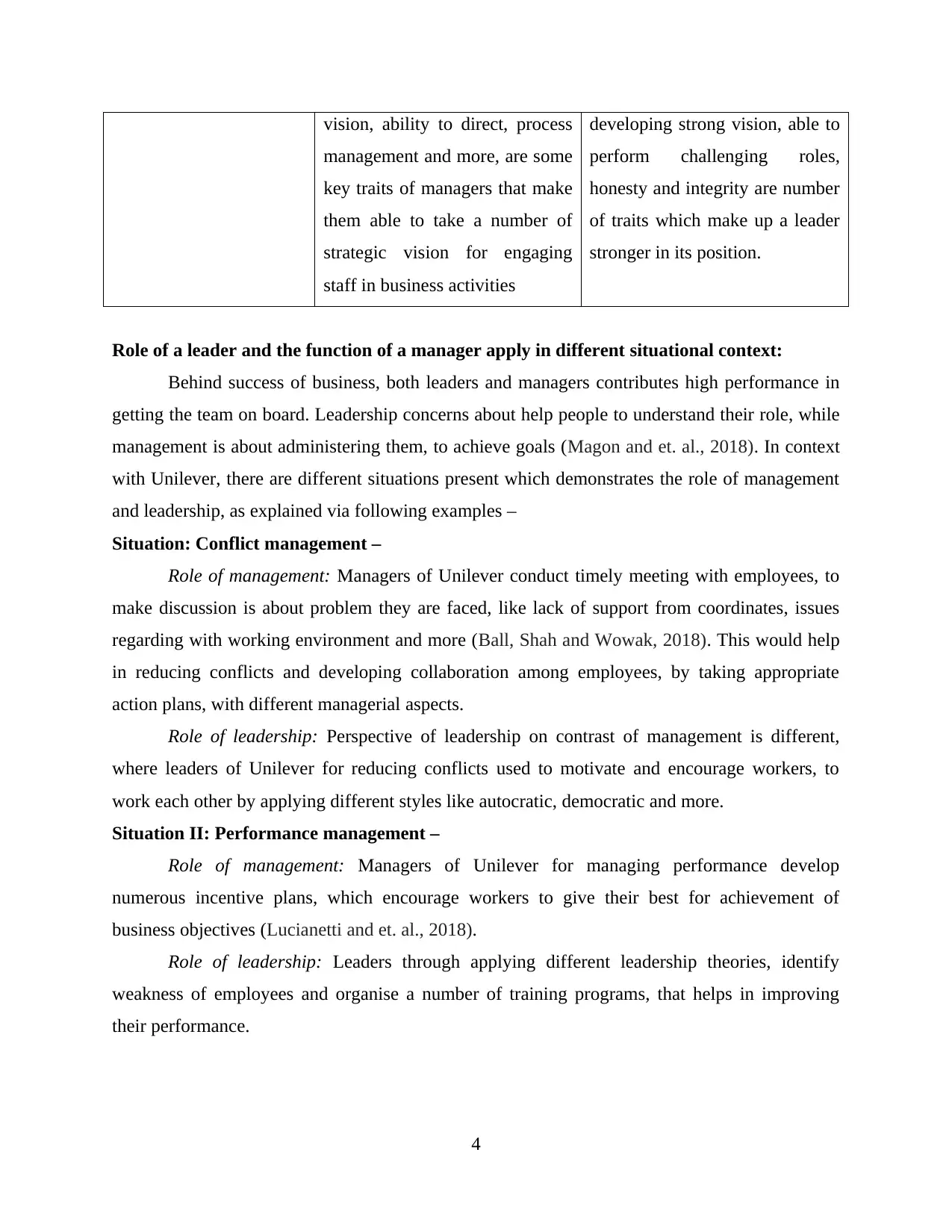
vision, ability to direct, process
management and more, are some
key traits of managers that make
them able to take a number of
strategic vision for engaging
staff in business activities
developing strong vision, able to
perform challenging roles,
honesty and integrity are number
of traits which make up a leader
stronger in its position.
Role of a leader and the function of a manager apply in different situational context:
Behind success of business, both leaders and managers contributes high performance in
getting the team on board. Leadership concerns about help people to understand their role, while
management is about administering them, to achieve goals (Magon and et. al., 2018). In context
with Unilever, there are different situations present which demonstrates the role of management
and leadership, as explained via following examples –
Situation: Conflict management –
Role of management: Managers of Unilever conduct timely meeting with employees, to
make discussion is about problem they are faced, like lack of support from coordinates, issues
regarding with working environment and more (Ball, Shah and Wowak, 2018). This would help
in reducing conflicts and developing collaboration among employees, by taking appropriate
action plans, with different managerial aspects.
Role of leadership: Perspective of leadership on contrast of management is different,
where leaders of Unilever for reducing conflicts used to motivate and encourage workers, to
work each other by applying different styles like autocratic, democratic and more.
Situation II: Performance management –
Role of management: Managers of Unilever for managing performance develop
numerous incentive plans, which encourage workers to give their best for achievement of
business objectives (Lucianetti and et. al., 2018).
Role of leadership: Leaders through applying different leadership theories, identify
weakness of employees and organise a number of training programs, that helps in improving
their performance.
4
management and more, are some
key traits of managers that make
them able to take a number of
strategic vision for engaging
staff in business activities
developing strong vision, able to
perform challenging roles,
honesty and integrity are number
of traits which make up a leader
stronger in its position.
Role of a leader and the function of a manager apply in different situational context:
Behind success of business, both leaders and managers contributes high performance in
getting the team on board. Leadership concerns about help people to understand their role, while
management is about administering them, to achieve goals (Magon and et. al., 2018). In context
with Unilever, there are different situations present which demonstrates the role of management
and leadership, as explained via following examples –
Situation: Conflict management –
Role of management: Managers of Unilever conduct timely meeting with employees, to
make discussion is about problem they are faced, like lack of support from coordinates, issues
regarding with working environment and more (Ball, Shah and Wowak, 2018). This would help
in reducing conflicts and developing collaboration among employees, by taking appropriate
action plans, with different managerial aspects.
Role of leadership: Perspective of leadership on contrast of management is different,
where leaders of Unilever for reducing conflicts used to motivate and encourage workers, to
work each other by applying different styles like autocratic, democratic and more.
Situation II: Performance management –
Role of management: Managers of Unilever for managing performance develop
numerous incentive plans, which encourage workers to give their best for achievement of
business objectives (Lucianetti and et. al., 2018).
Role of leadership: Leaders through applying different leadership theories, identify
weakness of employees and organise a number of training programs, that helps in improving
their performance.
4
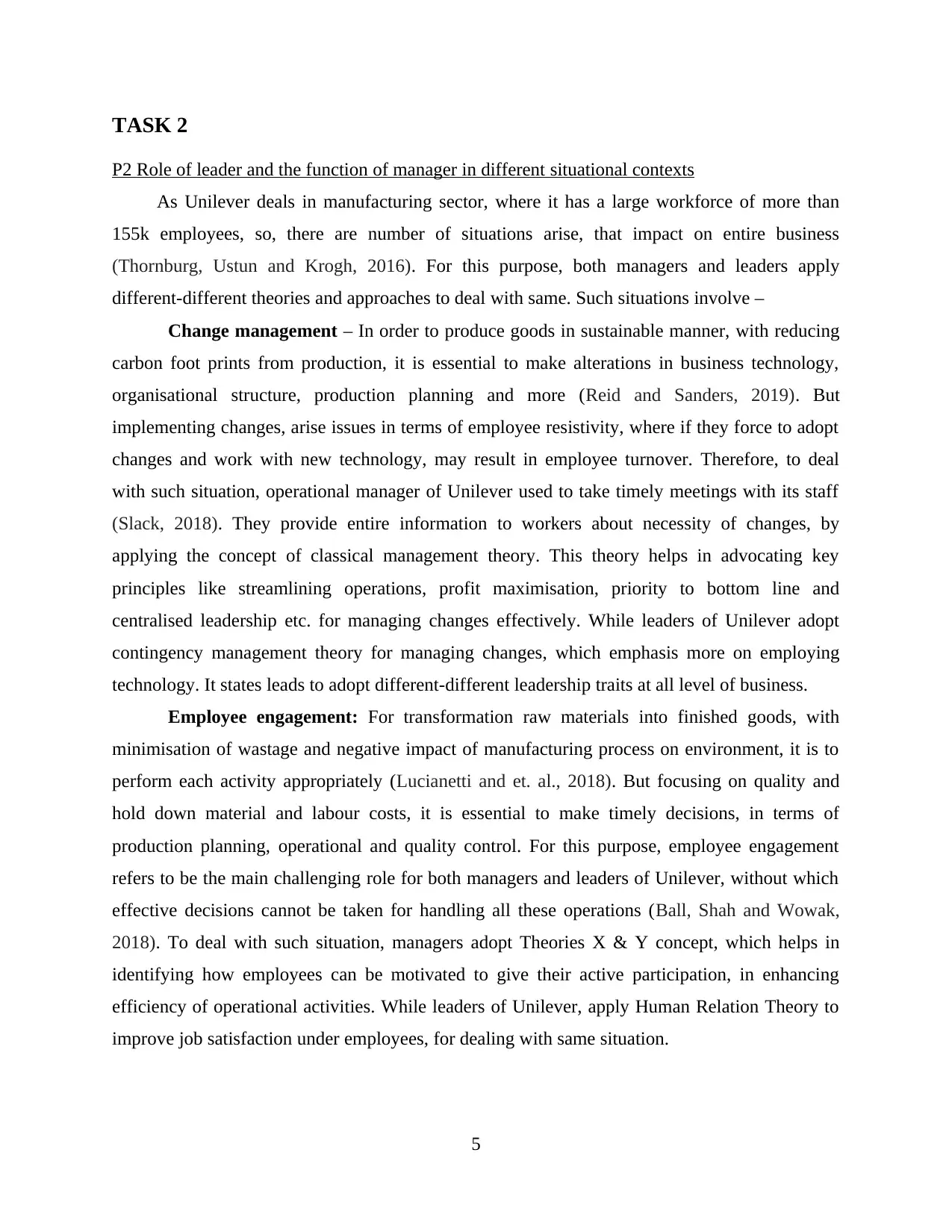
TASK 2
P2 Role of leader and the function of manager in different situational contexts
As Unilever deals in manufacturing sector, where it has a large workforce of more than
155k employees, so, there are number of situations arise, that impact on entire business
(Thornburg, Ustun and Krogh, 2016). For this purpose, both managers and leaders apply
different-different theories and approaches to deal with same. Such situations involve –
Change management – In order to produce goods in sustainable manner, with reducing
carbon foot prints from production, it is essential to make alterations in business technology,
organisational structure, production planning and more (Reid and Sanders, 2019). But
implementing changes, arise issues in terms of employee resistivity, where if they force to adopt
changes and work with new technology, may result in employee turnover. Therefore, to deal
with such situation, operational manager of Unilever used to take timely meetings with its staff
(Slack, 2018). They provide entire information to workers about necessity of changes, by
applying the concept of classical management theory. This theory helps in advocating key
principles like streamlining operations, profit maximisation, priority to bottom line and
centralised leadership etc. for managing changes effectively. While leaders of Unilever adopt
contingency management theory for managing changes, which emphasis more on employing
technology. It states leads to adopt different-different leadership traits at all level of business.
Employee engagement: For transformation raw materials into finished goods, with
minimisation of wastage and negative impact of manufacturing process on environment, it is to
perform each activity appropriately (Lucianetti and et. al., 2018). But focusing on quality and
hold down material and labour costs, it is essential to make timely decisions, in terms of
production planning, operational and quality control. For this purpose, employee engagement
refers to be the main challenging role for both managers and leaders of Unilever, without which
effective decisions cannot be taken for handling all these operations (Ball, Shah and Wowak,
2018). To deal with such situation, managers adopt Theories X & Y concept, which helps in
identifying how employees can be motivated to give their active participation, in enhancing
efficiency of operational activities. While leaders of Unilever, apply Human Relation Theory to
improve job satisfaction under employees, for dealing with same situation.
5
P2 Role of leader and the function of manager in different situational contexts
As Unilever deals in manufacturing sector, where it has a large workforce of more than
155k employees, so, there are number of situations arise, that impact on entire business
(Thornburg, Ustun and Krogh, 2016). For this purpose, both managers and leaders apply
different-different theories and approaches to deal with same. Such situations involve –
Change management – In order to produce goods in sustainable manner, with reducing
carbon foot prints from production, it is essential to make alterations in business technology,
organisational structure, production planning and more (Reid and Sanders, 2019). But
implementing changes, arise issues in terms of employee resistivity, where if they force to adopt
changes and work with new technology, may result in employee turnover. Therefore, to deal
with such situation, operational manager of Unilever used to take timely meetings with its staff
(Slack, 2018). They provide entire information to workers about necessity of changes, by
applying the concept of classical management theory. This theory helps in advocating key
principles like streamlining operations, profit maximisation, priority to bottom line and
centralised leadership etc. for managing changes effectively. While leaders of Unilever adopt
contingency management theory for managing changes, which emphasis more on employing
technology. It states leads to adopt different-different leadership traits at all level of business.
Employee engagement: For transformation raw materials into finished goods, with
minimisation of wastage and negative impact of manufacturing process on environment, it is to
perform each activity appropriately (Lucianetti and et. al., 2018). But focusing on quality and
hold down material and labour costs, it is essential to make timely decisions, in terms of
production planning, operational and quality control. For this purpose, employee engagement
refers to be the main challenging role for both managers and leaders of Unilever, without which
effective decisions cannot be taken for handling all these operations (Ball, Shah and Wowak,
2018). To deal with such situation, managers adopt Theories X & Y concept, which helps in
identifying how employees can be motivated to give their active participation, in enhancing
efficiency of operational activities. While leaders of Unilever, apply Human Relation Theory to
improve job satisfaction under employees, for dealing with same situation.
5
⊘ This is a preview!⊘
Do you want full access?
Subscribe today to unlock all pages.

Trusted by 1+ million students worldwide
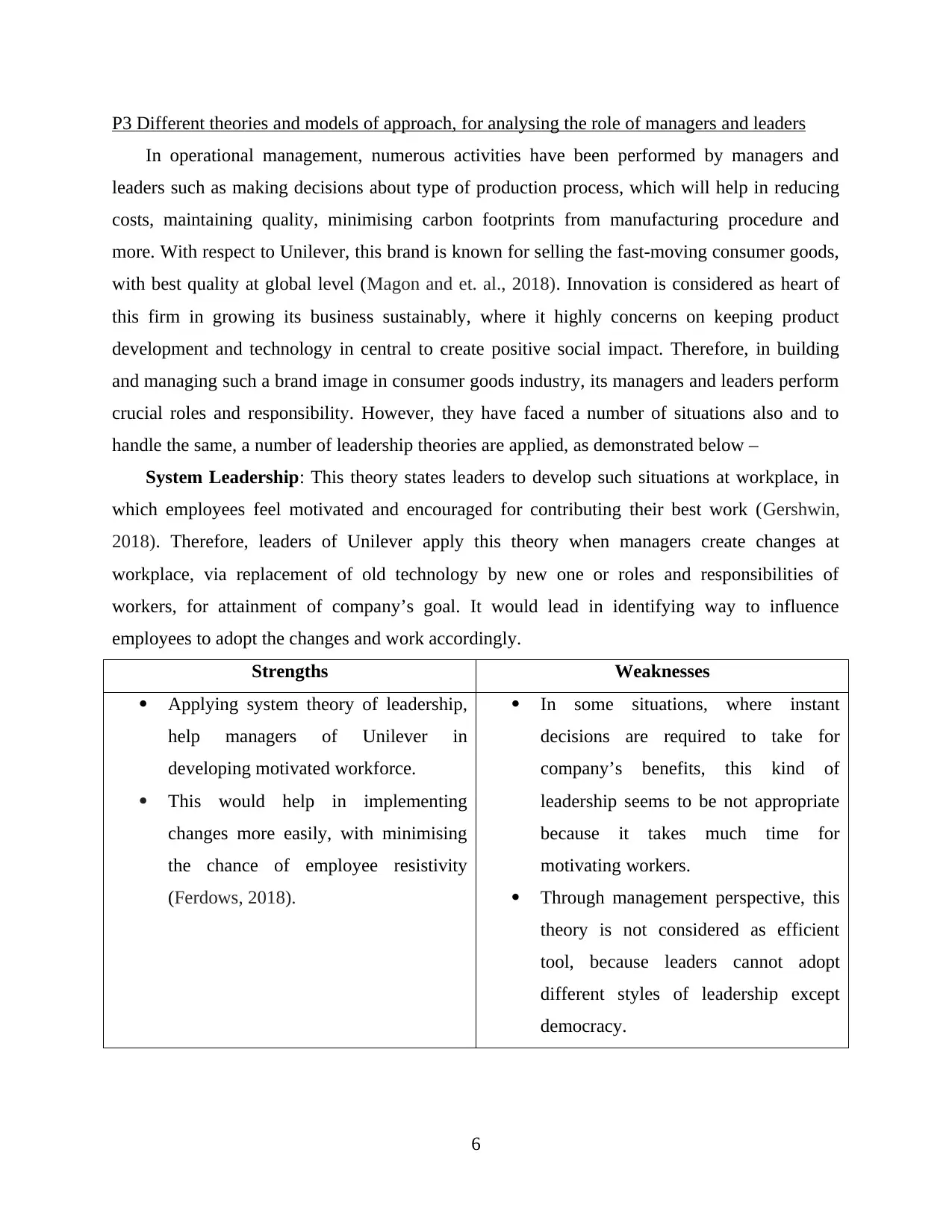
P3 Different theories and models of approach, for analysing the role of managers and leaders
In operational management, numerous activities have been performed by managers and
leaders such as making decisions about type of production process, which will help in reducing
costs, maintaining quality, minimising carbon footprints from manufacturing procedure and
more. With respect to Unilever, this brand is known for selling the fast-moving consumer goods,
with best quality at global level (Magon and et. al., 2018). Innovation is considered as heart of
this firm in growing its business sustainably, where it highly concerns on keeping product
development and technology in central to create positive social impact. Therefore, in building
and managing such a brand image in consumer goods industry, its managers and leaders perform
crucial roles and responsibility. However, they have faced a number of situations also and to
handle the same, a number of leadership theories are applied, as demonstrated below –
System Leadership: This theory states leaders to develop such situations at workplace, in
which employees feel motivated and encouraged for contributing their best work (Gershwin,
2018). Therefore, leaders of Unilever apply this theory when managers create changes at
workplace, via replacement of old technology by new one or roles and responsibilities of
workers, for attainment of company’s goal. It would lead in identifying way to influence
employees to adopt the changes and work accordingly.
Strengths Weaknesses
Applying system theory of leadership,
help managers of Unilever in
developing motivated workforce.
This would help in implementing
changes more easily, with minimising
the chance of employee resistivity
(Ferdows, 2018).
In some situations, where instant
decisions are required to take for
company’s benefits, this kind of
leadership seems to be not appropriate
because it takes much time for
motivating workers.
Through management perspective, this
theory is not considered as efficient
tool, because leaders cannot adopt
different styles of leadership except
democracy.
6
In operational management, numerous activities have been performed by managers and
leaders such as making decisions about type of production process, which will help in reducing
costs, maintaining quality, minimising carbon footprints from manufacturing procedure and
more. With respect to Unilever, this brand is known for selling the fast-moving consumer goods,
with best quality at global level (Magon and et. al., 2018). Innovation is considered as heart of
this firm in growing its business sustainably, where it highly concerns on keeping product
development and technology in central to create positive social impact. Therefore, in building
and managing such a brand image in consumer goods industry, its managers and leaders perform
crucial roles and responsibility. However, they have faced a number of situations also and to
handle the same, a number of leadership theories are applied, as demonstrated below –
System Leadership: This theory states leaders to develop such situations at workplace, in
which employees feel motivated and encouraged for contributing their best work (Gershwin,
2018). Therefore, leaders of Unilever apply this theory when managers create changes at
workplace, via replacement of old technology by new one or roles and responsibilities of
workers, for attainment of company’s goal. It would lead in identifying way to influence
employees to adopt the changes and work accordingly.
Strengths Weaknesses
Applying system theory of leadership,
help managers of Unilever in
developing motivated workforce.
This would help in implementing
changes more easily, with minimising
the chance of employee resistivity
(Ferdows, 2018).
In some situations, where instant
decisions are required to take for
company’s benefits, this kind of
leadership seems to be not appropriate
because it takes much time for
motivating workers.
Through management perspective, this
theory is not considered as efficient
tool, because leaders cannot adopt
different styles of leadership except
democracy.
6
Paraphrase This Document
Need a fresh take? Get an instant paraphrase of this document with our AI Paraphraser
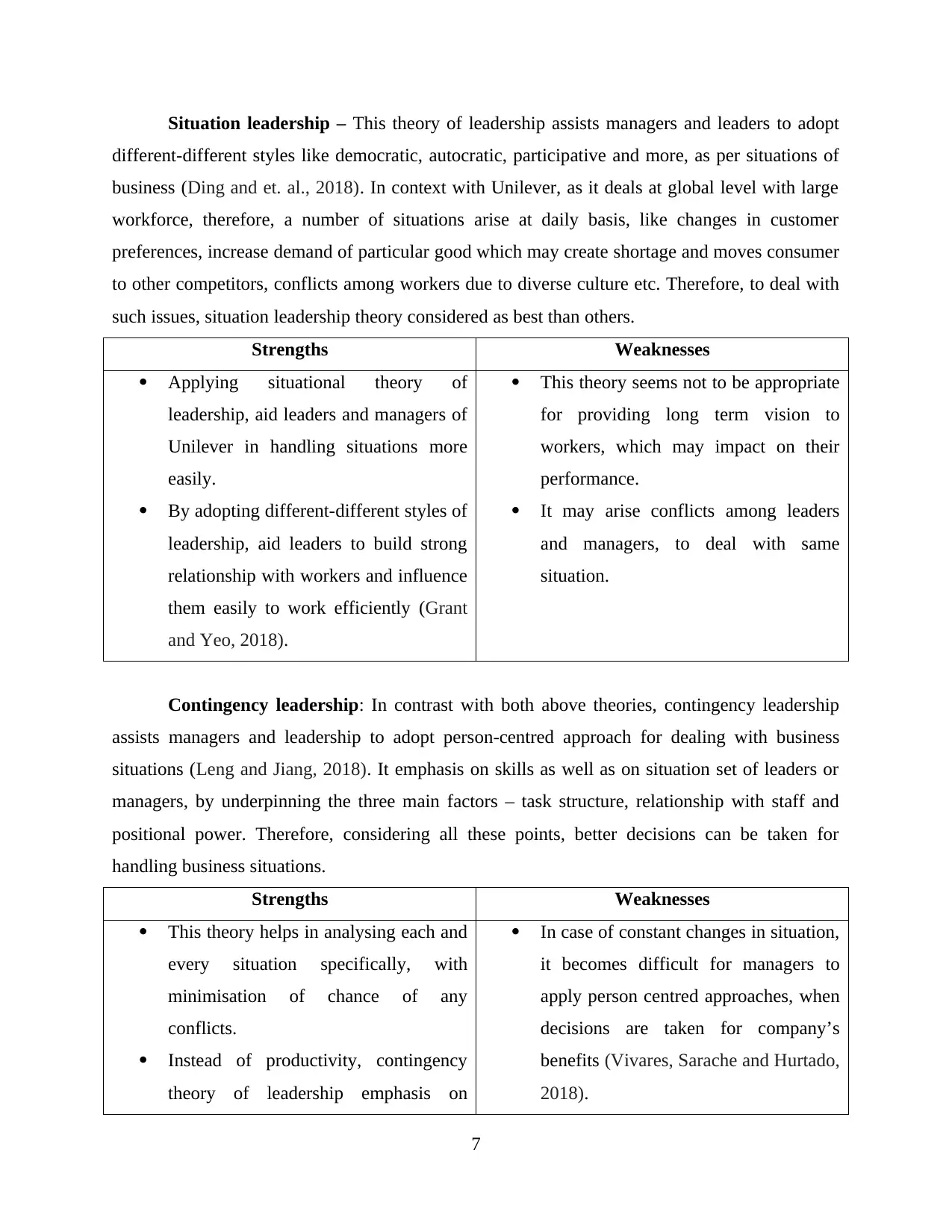
Situation leadership – This theory of leadership assists managers and leaders to adopt
different-different styles like democratic, autocratic, participative and more, as per situations of
business (Ding and et. al., 2018). In context with Unilever, as it deals at global level with large
workforce, therefore, a number of situations arise at daily basis, like changes in customer
preferences, increase demand of particular good which may create shortage and moves consumer
to other competitors, conflicts among workers due to diverse culture etc. Therefore, to deal with
such issues, situation leadership theory considered as best than others.
Strengths Weaknesses
Applying situational theory of
leadership, aid leaders and managers of
Unilever in handling situations more
easily.
By adopting different-different styles of
leadership, aid leaders to build strong
relationship with workers and influence
them easily to work efficiently (Grant
and Yeo, 2018).
This theory seems not to be appropriate
for providing long term vision to
workers, which may impact on their
performance.
It may arise conflicts among leaders
and managers, to deal with same
situation.
Contingency leadership: In contrast with both above theories, contingency leadership
assists managers and leadership to adopt person-centred approach for dealing with business
situations (Leng and Jiang, 2018). It emphasis on skills as well as on situation set of leaders or
managers, by underpinning the three main factors – task structure, relationship with staff and
positional power. Therefore, considering all these points, better decisions can be taken for
handling business situations.
Strengths Weaknesses
This theory helps in analysing each and
every situation specifically, with
minimisation of chance of any
conflicts.
Instead of productivity, contingency
theory of leadership emphasis on
In case of constant changes in situation,
it becomes difficult for managers to
apply person centred approaches, when
decisions are taken for company’s
benefits (Vivares, Sarache and Hurtado,
2018).
7
different-different styles like democratic, autocratic, participative and more, as per situations of
business (Ding and et. al., 2018). In context with Unilever, as it deals at global level with large
workforce, therefore, a number of situations arise at daily basis, like changes in customer
preferences, increase demand of particular good which may create shortage and moves consumer
to other competitors, conflicts among workers due to diverse culture etc. Therefore, to deal with
such issues, situation leadership theory considered as best than others.
Strengths Weaknesses
Applying situational theory of
leadership, aid leaders and managers of
Unilever in handling situations more
easily.
By adopting different-different styles of
leadership, aid leaders to build strong
relationship with workers and influence
them easily to work efficiently (Grant
and Yeo, 2018).
This theory seems not to be appropriate
for providing long term vision to
workers, which may impact on their
performance.
It may arise conflicts among leaders
and managers, to deal with same
situation.
Contingency leadership: In contrast with both above theories, contingency leadership
assists managers and leadership to adopt person-centred approach for dealing with business
situations (Leng and Jiang, 2018). It emphasis on skills as well as on situation set of leaders or
managers, by underpinning the three main factors – task structure, relationship with staff and
positional power. Therefore, considering all these points, better decisions can be taken for
handling business situations.
Strengths Weaknesses
This theory helps in analysing each and
every situation specifically, with
minimisation of chance of any
conflicts.
Instead of productivity, contingency
theory of leadership emphasis on
In case of constant changes in situation,
it becomes difficult for managers to
apply person centred approaches, when
decisions are taken for company’s
benefits (Vivares, Sarache and Hurtado,
2018).
7
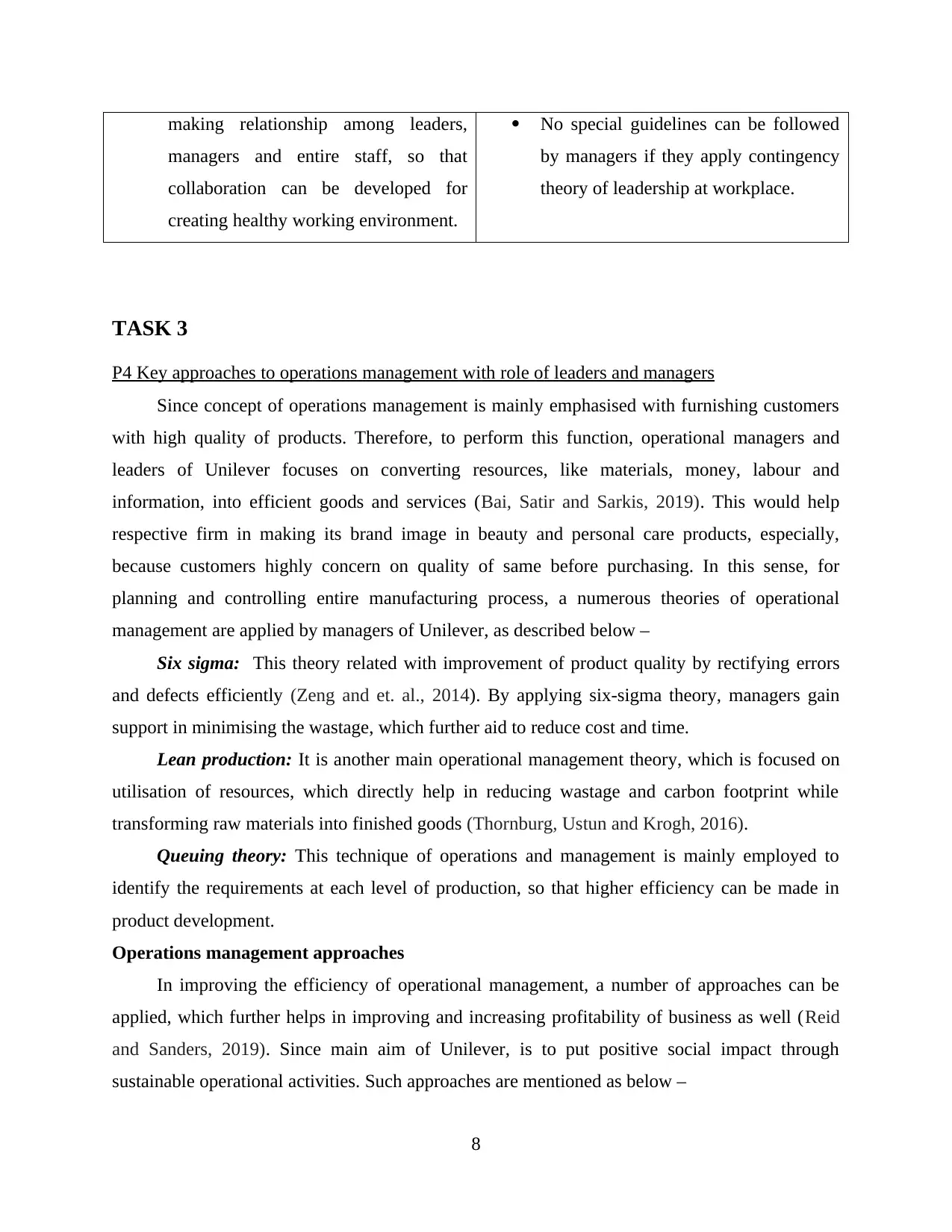
making relationship among leaders,
managers and entire staff, so that
collaboration can be developed for
creating healthy working environment.
No special guidelines can be followed
by managers if they apply contingency
theory of leadership at workplace.
TASK 3
P4 Key approaches to operations management with role of leaders and managers
Since concept of operations management is mainly emphasised with furnishing customers
with high quality of products. Therefore, to perform this function, operational managers and
leaders of Unilever focuses on converting resources, like materials, money, labour and
information, into efficient goods and services (Bai, Satir and Sarkis, 2019). This would help
respective firm in making its brand image in beauty and personal care products, especially,
because customers highly concern on quality of same before purchasing. In this sense, for
planning and controlling entire manufacturing process, a numerous theories of operational
management are applied by managers of Unilever, as described below –
Six sigma: This theory related with improvement of product quality by rectifying errors
and defects efficiently (Zeng and et. al., 2014). By applying six-sigma theory, managers gain
support in minimising the wastage, which further aid to reduce cost and time.
Lean production: It is another main operational management theory, which is focused on
utilisation of resources, which directly help in reducing wastage and carbon footprint while
transforming raw materials into finished goods (Thornburg, Ustun and Krogh, 2016).
Queuing theory: This technique of operations and management is mainly employed to
identify the requirements at each level of production, so that higher efficiency can be made in
product development.
Operations management approaches
In improving the efficiency of operational management, a number of approaches can be
applied, which further helps in improving and increasing profitability of business as well (Reid
and Sanders, 2019). Since main aim of Unilever, is to put positive social impact through
sustainable operational activities. Such approaches are mentioned as below –
8
managers and entire staff, so that
collaboration can be developed for
creating healthy working environment.
No special guidelines can be followed
by managers if they apply contingency
theory of leadership at workplace.
TASK 3
P4 Key approaches to operations management with role of leaders and managers
Since concept of operations management is mainly emphasised with furnishing customers
with high quality of products. Therefore, to perform this function, operational managers and
leaders of Unilever focuses on converting resources, like materials, money, labour and
information, into efficient goods and services (Bai, Satir and Sarkis, 2019). This would help
respective firm in making its brand image in beauty and personal care products, especially,
because customers highly concern on quality of same before purchasing. In this sense, for
planning and controlling entire manufacturing process, a numerous theories of operational
management are applied by managers of Unilever, as described below –
Six sigma: This theory related with improvement of product quality by rectifying errors
and defects efficiently (Zeng and et. al., 2014). By applying six-sigma theory, managers gain
support in minimising the wastage, which further aid to reduce cost and time.
Lean production: It is another main operational management theory, which is focused on
utilisation of resources, which directly help in reducing wastage and carbon footprint while
transforming raw materials into finished goods (Thornburg, Ustun and Krogh, 2016).
Queuing theory: This technique of operations and management is mainly employed to
identify the requirements at each level of production, so that higher efficiency can be made in
product development.
Operations management approaches
In improving the efficiency of operational management, a number of approaches can be
applied, which further helps in improving and increasing profitability of business as well (Reid
and Sanders, 2019). Since main aim of Unilever, is to put positive social impact through
sustainable operational activities. Such approaches are mentioned as below –
8
⊘ This is a preview!⊘
Do you want full access?
Subscribe today to unlock all pages.

Trusted by 1+ million students worldwide
1 out of 17
Related Documents
Your All-in-One AI-Powered Toolkit for Academic Success.
+13062052269
info@desklib.com
Available 24*7 on WhatsApp / Email
![[object Object]](/_next/static/media/star-bottom.7253800d.svg)
Unlock your academic potential
Copyright © 2020–2026 A2Z Services. All Rights Reserved. Developed and managed by ZUCOL.





